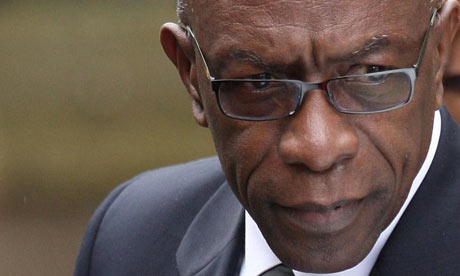Recent developments surrounding the tendering process for the FIFA World Cups of 2018 and 2022 have left many wondering whether FIFA is in touch with the sports industry. The tendering process and awarding of the 2018 and 2022 to Russia and Qatar respectively led a former president of Germany’s Federal Court of Justice to resign his position on the FIFA Ethics Committee. Mr. Guenter Hirsch remarked that the tendering process persuaded him that ‘those responsible in FIFA have no real interest in playing an active role in the resolution, pursuance, and prevention of violations of FIFA’s ethics code’. Mr. Hirsch felt he could no longer be associated with a governing body lacking any credible response to bribery allegations in connection with the executive committee’s voting for the 2018 and 2022 world cup hosts.
 The FIFA Code of Ethics 2009 (the most recent edition on the official FIFA website) makes for interesting reading in light of the on-going allegations directed at one of its most powerful officials; Mr. Jack Warner. Mr. Warner is the President of the Caribbean Football Union (CFU) and a member of the FIFA executive committee. There are no actions currently pending in respect to any alleged bribery connected with the 2018 and 2022 World Cup bids. Incidentally, Mr. Warner is widely rumoured to have a certain persuasive power over many of the other executive committee members when the World Cup bid season arrives.
The FIFA Code of Ethics 2009 (the most recent edition on the official FIFA website) makes for interesting reading in light of the on-going allegations directed at one of its most powerful officials; Mr. Jack Warner. Mr. Warner is the President of the Caribbean Football Union (CFU) and a member of the FIFA executive committee. There are no actions currently pending in respect to any alleged bribery connected with the 2018 and 2022 World Cup bids. Incidentally, Mr. Warner is widely rumoured to have a certain persuasive power over many of the other executive committee members when the World Cup bid season arrives.
Mr. Warner is currently being investigated by FIFA for the ticket deal he conducted with a Norwegian black market company during the 2006 FIFA World Cup. This black market company, Euroteam, sold tickets in excess of €60 million ($81.7 million) at the 2006 FIFA World Cup. It is also alleged that FIFA is in possession of documents that Mr. Warner and Euroteam were in negotiation with regard to the 2010 FIFA World Cup. This deal fell through and both parties were left to ponder what could have been.
General rules Article 3.3 of this code states that:
“Officials may not abuse their position as part of their function in any way, especially to take advantage of their function for private aims or gains.”
Read this article in conjunction with the Conflict of Interest Article 5.2:
“While performing their duties, officials shall avoid any situation that could lead to a conflict of interest. Conflicts of interest arise if officials have, or appear to have, private or personal interests that detract from their ability to perform their duties as officials in an independent and purposeful manner…….”
The code clearly forbids any abuse of position or conflict of interest in its ranks. The Code of Ethics does not contain any disciplinary code. It is however bound by the FIFA Statutes and the FIFA Disciplinary Code. The FIFA disciplinary sanctions were drawn up by the FIFA Executive Committee so Mr. Warner is acutely aware of how the process works and what sanctions he may face.
Mr. Warner was previously handed a substantial fine for a black market scandal but held his position on FIFA’s Executive Committee. In November 2010, a number of Executive Members breached the Ethics Code having taken part in the money for World Cup votes deal. They received suspensions ranging from one and four years from any football related activity. FIFA is willing to discipline its officials but whether this is true for those sitting at the top table of soccer’s most powerful governing body remains unanswered.
The requirement for governance, transparency and culpability within FIFA may see a different approach adopted in this particular investigation. The soccer, sporting and wider public is watching how FIFA deals with this delicate issue as the financial, political and emotional wounds in England and other unsuccessful bidders begin to heal. The justification of Mr. Blatter’s position and more importantly the future of the FIFA brand will be once more considered when this investigation concludes. I hope the ethically correct decision is reached and that Mr.Hirsch’s resignation marks a more literal approach by FIFA to its Code of Ethics.